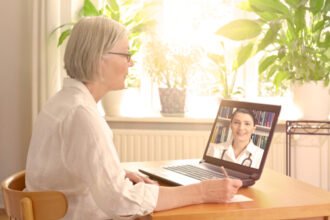 Should doctors undergo a formal social media training program? The answer from Mayo Clinic is “yes.”
Should doctors undergo a formal social media training program? The answer from Mayo Clinic is “yes.”
 Should doctors undergo a formal social media training program? The answer from Mayo Clinic is “yes.”
Should doctors undergo a formal social media training program? The answer from Mayo Clinic is “yes.”
The healthcare system’s social media training program, “Social Media Residency,” will for the first time will be offered at another hospital. The program will be held at Lenox Hill Hospital in New York City this June.
Although there have been many doctor advocates for social media, there are still limited social media training resources for doctors, especially for young doctors.
One can argue that doctors should use their common sense to guide their online presence. But as social media and digital technologies progress, the implications of these emerging channels are beyond their functions as communication platforms–innovators in healthcare have been exploring social media for other functions such as clinical recruitment, mobile medicine, hospital re-admission reduction and patient adherence. Some of these explorations have shown promising results and physicians may be able to utilize these new tools in a clinical setting soon.
Thus, training physicians on the use of social media is more than about telling them how to maintain a professional online profile when patients search their names; more important, the training should be about the future trends of the online world, and how physicians can bridge the knowledge in medicine and digital techniques to ultimately advance medicine and enhance healthcare delivery.
There are three reasons why a social media training program like “Social Media Residency” is essential for tomorrow’s physicians.
Physicians will be a driving force in medical innovation
Physicians are the stakeholders in healthcare who directly engage patients and touch different segments of the healthcare system—from ordering tests, prescribing medications, checking medical record, coordinating with other specialists and even handling billing. Therefore, insights from physicians are unique and valuable for healthcare innovation.
As the healthcare system is shifting to a patient-centered model, non-medication intervention will play a more important role in patient management. Prevention, early diagnosis, better integration and improved patient communication can all contribute to driving outcomes. Many of these improvements can be driven by social media and digital technologies. As physicians work together to deliver cost-effective healthcare for patients, they not only need to understand how these emerging tools work but also use insights to identify opportunities to improve them.
Social media has redefined the relationship between physicians and patients
With free and easy access to medical information, patients are much more educated today. According to a study published on the Journal of Health Communication, 70 percent of surveyed patients planned to ask their doctor questions about the information they found, and 40 percent had printed the information to take to the appointment. Meanwhile, patients are also using online channels and mobile tools to counsel peers, share experience, track progression of their condition and log side effects of treatments. In some disease state with extremely active patient advocates (e.g., diabetes, cancer, rare diseases), patients are powerful enough to influence policy making and business decisions made by pharmaceutical companies.
Physicians who play a leading role in healthcare delivery cannot react to the trend by ignoring it. To manage the new physician-patient relationship properly requires knowledge in social media and digital—where patients are discussing the condition, what websites contain the most reputable medical content, what mobile apps might add value to disease management for patients and what a proper way would be to convince patients about diagnosis or treatment when it is different from what they found online.
The bottom line is about adding value in healthcare delivery
The essence of patient-centered healthcare is about adding value. As Michael Porter discussed in his famous paper What Is Value in Health Care back in 2010, achieving high value for patients must become the overarching goal of healthcare delivery and value should define the framework for performance improvement in healthcare. Thus, the reason why we need to train physicians on social media should also be about adding value.
Although researchers and the industry are still figuring out ways to measure the value of social media in a clinical setting, some indirect or qualitative findings illustrate social media can enhance value in healthcare.
For example, many studies have shown social connections can be beneficial for mental health. Peer counseling and support groups—things patients do in social media each day—foster such connections and help patients to better cope with their conditions. When I was doing research for a client in ALS drug development, I encountered this comment: “I desperately needed to adjust my ‘new life’ to this ‘new reality.’ Social media has helped with that adjustment by empowering me and other patients.” This is just one of many revealing patient comments that I have seen in the last couple of years.
Efforts to drive the value of social media in healthcare have also been made by businesses. Forbes reported a company called Healtheo360 has recently launched a patient study designed to measure the advantages of Virtual Social Therapy, a social media-based service developed by the company, in patients with diabetes.
Mayo Clinic’s “Social Media Residency” program indicates leading healthcare organizations have realized the necessity to incorporate social media into the formal training channel and started to experiment emerging tools in a clinical setting. It is a great starting point, but more still need to be explored from multiple perspectives before physicians can ultimately utilize social media to deliver measurable, meaningful and consistent outcomes.
(image: social media & physicians / shutterstock)







